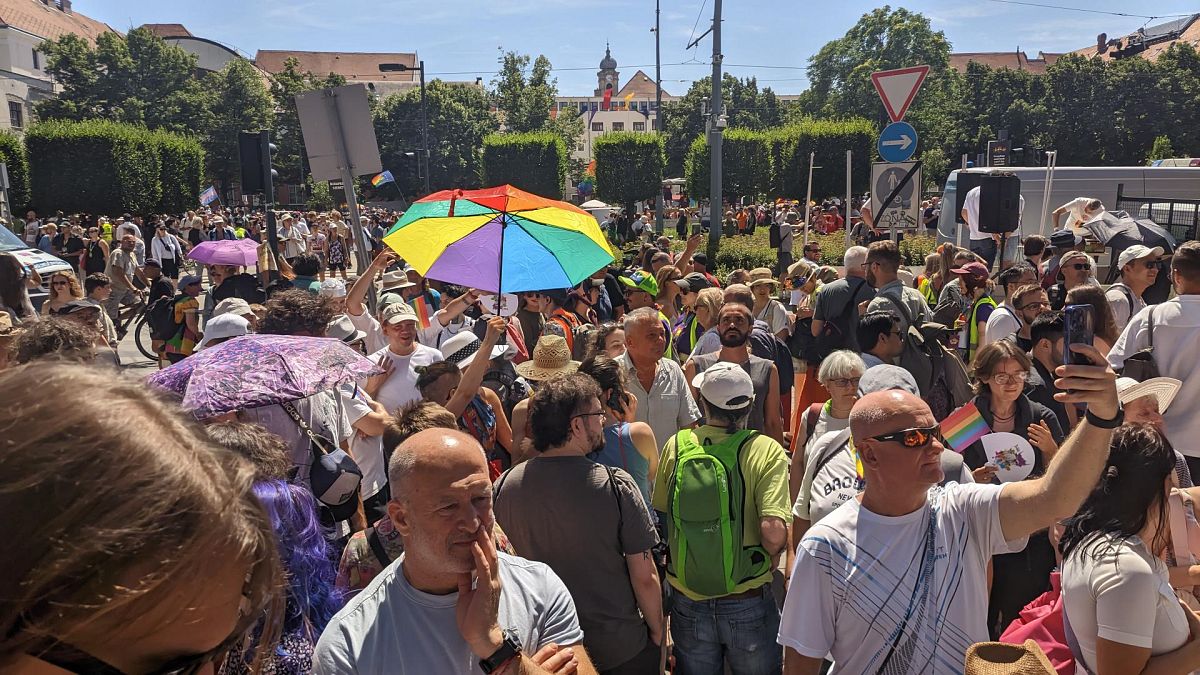

In a vivid display of unity and courage, tens of thousands of people convened in Budapest on a sunny Saturday to celebrate the 30th anniversary of Budapest Pride. This joyful gathering comes in bold defiance of a government-imposed ban on the renowned march, showcasing the enduring spirit and solidarity of Hungary’s LGBTQ+ community and its allies.
Despite the restrictions imposed by Prime Minister Viktor Orbán’s government, the vibrant celebrations carried forward with a peaceful determination. Participants included not only Hungarian citizens but also international supporters, members of the European Parliament, and distinguished EU Commissioners who journeyed to Budapest to lend their support to this momentous occasion. Together, they created a jubilant sea of rainbow flags and spirited placards that filled the city’s streets, forming a striking testament to their unwavering commitment to freedom, dignity, and equal rights.
The march, though challenged by legal threats and political opposition, moved forward with grace and composure. The participants, encouraged by Budapest’s own mayor, gathered to “come calmly and boldly to stand together” against divisive policies. By assembling in such large numbers, they sent a powerful message: a call for openness and acceptance in the face of adversity.
In recent times, Hungary has experienced increasing tensions surrounding issues of LGBTQ+ rights. The crackdown on Pride events can be seen as part of a broader agenda to suppress democratic freedoms in the lead-up to a closely contested national election. Yet, amidst these challenges, the spirit of Pride remains resilient. Rather than dampening the enthusiasm, the government’s stance appears to have galvanized public support, attracting attendees eager to advocate for inclusivity and human rights.
This year’s Pride march also marked the participation of numerous “first priders,” individuals attending for the first time, highlighting the growth and influence of the movement. Among the attendees were influential EU lawmakers who joined the march to express a shared vision of a more tolerant and equitable society, one where diversity in sexual orientation and gender identity is celebrated and protected.
The Budapest Pride is emblematic of larger conversations happening across Europe, reflecting diverse stances toward LGBTQ+ rights. While some countries, like Hungary, face challenges in securing these rights, others, such as Malta, have achieved considerable progress. Interestingly, Malta presents an intriguing dichotomy—widely praised for its progressive stance on LGBTQ+ rights, it simultaneously upholds stringent anti-abortion laws. This paradox underscores the complexities inherent in the struggle for social change, revealing the nuanced interplay of cultural, political, and religious influences.
As Budapest Pride concluded peacefully, the occasion served as a hopeful reminder of human resilience and the capacity for collective action to influence positive societal change. Despite governmental efforts to curtail the celebrations, the spirit of Pride has emerged brighter, fostering community bonds and reinforcing the universal ideals of love, acceptance, and understanding.
As attendees slowly disbanded, the echoes of their chants and laughter lingered in the air—a reminder that while obstacles may persist, the resolve of those advocating for equality remains unbroken. The Budapest Pride anniversary celebration thus illuminated not only the path toward greater inclusion but also the enduring power of peaceful resistance.
Source: {link}
